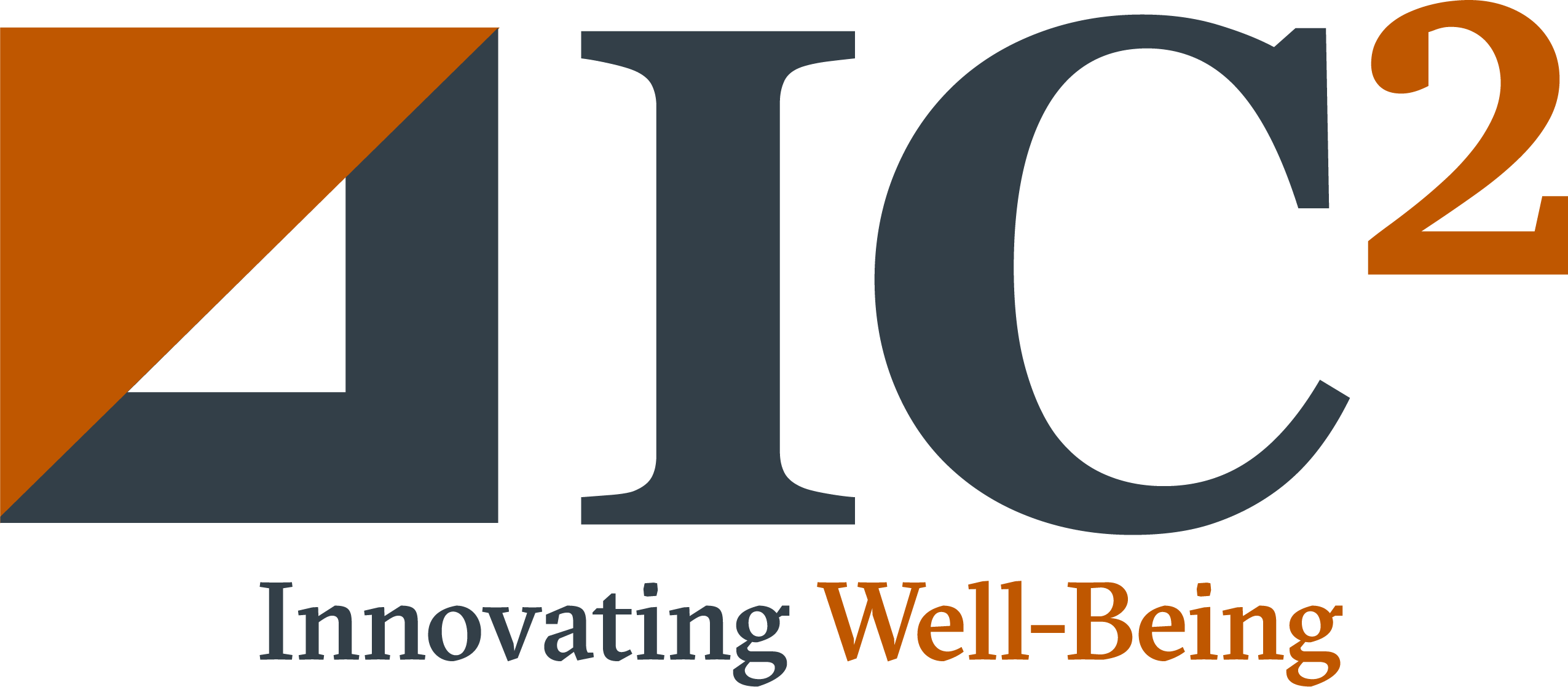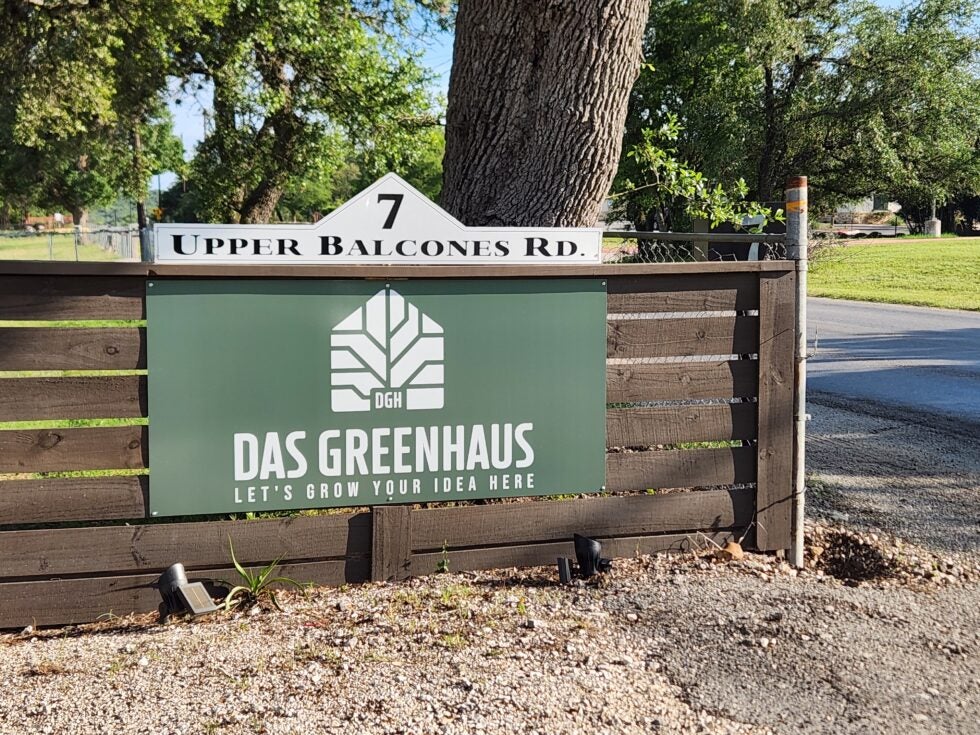When you work at a think tank, there’s not always a straight line between your research and real-world results. That’s why the recent opening of a business incubator in Boerne, Texas, met with such excitement at the IC² Institute.
The opening of the Boerne incubator, Das Greenhaus, is the result of a persistent, years-long effort on the part of the Boerne Kendall County Economic Development Corporation (BKCEDC) to generate economic growth and resilience for their community. The opening is also the result of research, community engagement, and guidance from IC² staff and associated UT faculty.
The Kendall County/IC² partnership took off in 2019, when BKCEDC president, Amy Story, reached out to then-institute director, Art Markman. Story had heard about the work that IC² was doing in smaller Texas communities to jump-start local economies and encourage young, educated adults to “boomerang” back to their hometowns.
A town of roughly 44,000 residents, Boerne sits just 30 miles north of San Antonio — the same distance that Georgetown sits from Austin. With that close-to-the-big-city location, natural amenities, and a strong network of retirees with significant business experience and cash, Boerne’s leaders felt that their town was poised to become a growth economy. But they needed a plan.
In Boerne, IC² found an ideal laboratory: a small Texas town with the foresight to ask for assistance, a vision for their future, and the local leadership to make things happen.
From Vision to Strategy
After a series of discussions, IC² ultimately connected Story with research partner and founder/director of the Urban Lab at the LBJ School of Public Affairs, Steven Pedigo. Pedigo and a team of graduate students helped Kendall County create a strategy for transforming Boerne and Kendall County into an innovation hub for the Hill Country.
With financial support from IC², Pedigo spent a year engaging with residents, business executives, community leaders, and elected officials. Together, they assessed Boerne’s strengths and weaknesses and identified opportunities.
Story said, “The roundtables helped us identify the need in our community.”
The resulting strategic plan outlined 5 goals, the first of which was to “foster a startup ecosystem that is a model for the Texas Hill Country.” The report pointed out that Boerne already had “all of the assets that innovation ecosystems require, including an educated talent base”.” But, the report emphasized, “ensuring that the entrepreneurs have all the support they need” is a necessary first step towards jump-starting growth.
Fostering a startup ecosystem seemed plausible, but how to start? The plan laid out several crucial steps, including launching an angel network (to connect entrepreneurs with mentors and angel investors), and creating a co-working space (to lower startup costs for new businesses.)
Rather than working to attract any and all types of business, the plan suggests focusing on a few key clusters: advanced manufacturing & construction projects; agri-tech; biosciences and pharmaceuticals; design and build professional services; and wineries, distilleries and breweries.
Reversing the Brain Drain
And, like most other small communities, Boerne needs to attract and retain talent. One of the greatest challenges for rural communities is brain drain: young, talented adults heading to the big city instead of returning home.
To counteract the big-city-or-bust trend, IC² created the Home to Texas Program. Established in 2019 and now housed at Texas Career Engagement, the highly regarded internship program matches UT students with paid internships in their hometowns across Texas.
Kendall County has seized upon the Home to Texas program; in fact, over the previous 4 summers, Boerne has hosted 10 students. Employers have included both private companies and public agencies like the library, electric co-op, and the nature center.
Story sees the program’s impact: “Our students now see an opportunity to come back home and get involved.”
Working the Plan
Piece by piece, the BKCEDC is accomplishing the objectives laid out in the strategic plan created by Pedigo and his team.
When it came time to conceptualize a co-working space, IC² was able to provide guidance there, too. As luck would have it, one of IC²’s faculty research partners, Moody College professor S. Craig Watkins was already researching co-working spaces. Watkins (now serving as executive director of the IC² Institute) shared his findings with the BKCEDC and introduced them to other communities using co-working spaces to jumpstart their economies.
… Fast forward to June 17, 2023, when the BKCEDC opened its incubator, Das Greenhaus (The Greenhouse) opened in a 4,800-square-foot building close to the highway and six minutes from downtown. Das Greenhaus provides private and flexible/communal spaces for entrepreneurs to set up shop and have access to mentors while they are growing their business.
The incubator already has one tenant and a second lined up: one is an agri-business; the other, a bio-tech company. The owner of the biotech company is a Boerne native, Miles Murray.
“I grew up fishing and running around the rivers and all the whitetail deer and then I left for the service … What I learned is that you must invest locally where you are in order for your own community to prosper,” Murray said1.
Small Town Potential
The Boerne Kendall County EDC / IC² partnership has been a win/win: the EDC has tapped into the resources and experience of IC² — and IC² has enjoyed having a laboratory in which to apply rural economic development practices and demonstrate its commitment to community engagement.
The biggest takeaway, perhaps, is a reminder that entrepreneurship is not the sole property of the big city; smaller cities, too, can work strategically to identify and harness their strengths and grow their economies.
IC² Deputy Director Gregory Pogue sums it up: “Boerne is an example for small cities in Texas — how to collect data and build a vision, create a plan with inclusive value to the community, and to do the hard thing: move from ideation to realization.” Pogue, who has played the roles of advisor, champion, and facilitator through the process, added, “We are excited to watch how Das Greenhaus attracts talent and builds economic impact.”
1from The Boerne Star
END


